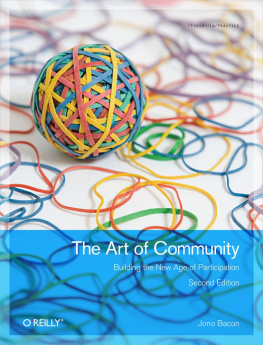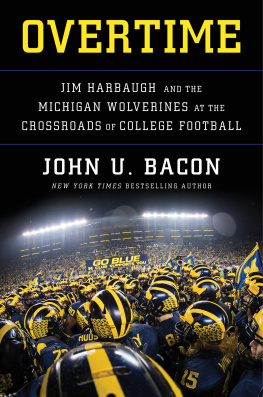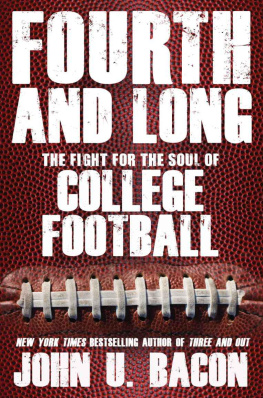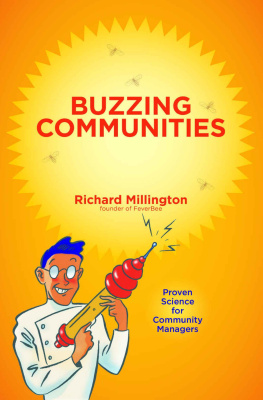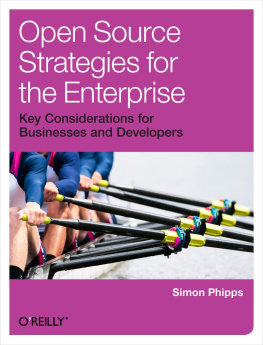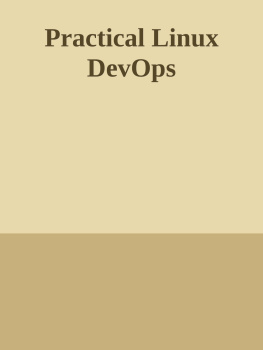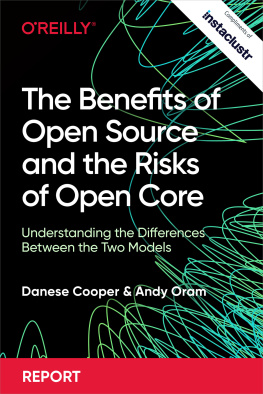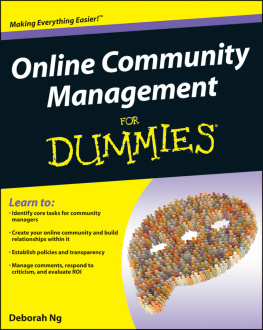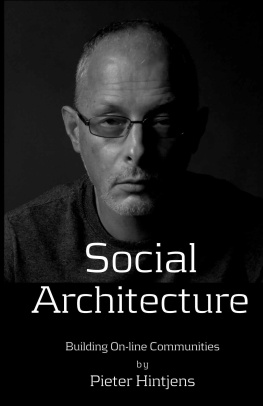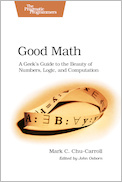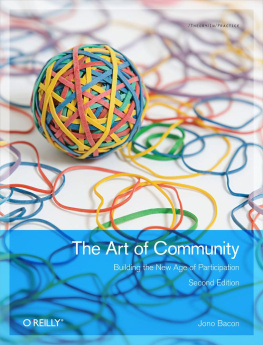Foreword
From ants to anteaters, bees to beekeepers, community is a fundamental part of our life on the planet. We thrive when we are immersed in it, suffer when deprived of it, and wherever humans go we create it. We define ourselves by our communities: tribe, family, work, clubs, schools, churches and temples, these are who we are. We are born into community, and if were lucky well end our days surrounded by it.
Its no surprise that as soon as humans began to go online, communities formed, but as easy and natural as group formation is for us in real life, we can find it frustrating online. Many of the cues that grease the wheels of human interaction in person are missing online. Gone is the grin that can soften a criticism, the pat on the back that can heal a rift. How can you hug it out when your antagonist is a continent away and you know no more about him than his handle and a few lines of signature? Online groups can breed the most vicious of rivalries. The Hatfields and McCoys have nothing on alt.tv.doctorwho .
Communities are tough enough to maintain when youre all in the same room; how much harder is it to build, maintain, and nurture a community online? Thats why this book is such a boon to those who run communities and the rest of us who participate in them. Jono Bacon has firsthand experience with managing a group of the most bloody-minded and independent people on the planet: open source programmers. The information in this book has been forged in the white-hot crucible of free software. You dont get tougher than that.
My experience with online forums began 25 years ago when I started a bulletin board for Macintosh users called MacQueue. Its not easy to start a flame war with dual 14.4 kbps modems and 20 MB of storage, but the MacQueuers managed. A few years later I joined The Well, a legendary online community based in Sausalito, California, and imbued with the peace and love ethos of the San Francisco hippies. That didnt last long. The Well went through an arc I came to know intimately, one that most online communities seem to follow.
When any affinity group forms online its a joyous occasion. The founders and early members are wreathed in the cooperative enthusiasm that accompanies most new beginnings. Conversations are civil, helpful, and kind. Posts twinkle with good spirits and bonhomie. Alls right with the Web. Then the rot begins to set in. Tempers flair, resentments build, rivalries form. Its a lot like marriage.
Unlike most marriages, however, online members have looser ties to the group and a reduced stake in its success. When trolls become annoying, the flame wars too fiery, members move on, and pretty soon that happy online forum turns into a ghost town, or worse.
But it doesnt have to be that way. With his usual wit and good humor, Jono has written a guide with everything you need to keep your online groups healthy and productive. With proper planning, a modicum of guidance, and the occasional banishment, your community can avoid that seemingly inevitable descent into fear and loathing. We need good community managers because we need healthy communities online. Ive started my share of communities online, and killed a few with neglect, too. Im so grateful to Jono for giving me the tools to do it right from now on. I know we all are.
Leo LaporteBroadcaster and Founder of the TWiT Network Petaluma, California June 30, 2009
Preface
Community is a funny ol word. In recent years our humble nine-letter friend has gone on to mean many things to many people. No longer merely the domain of charity groups and overtly friendly neighbors, community has gone on to be the talk of technologists, business-people, politicians, students, welfare groups, and just about anyone who has connected to the Internet. Throughout this explosive community love-fest, a minor detail has been omitted in all the excitement: how on earth do we built an inspiring, engaging, and enjoyable community in our own walk of life?
Toward the end of Summer 2008 I received a phone call from Andy Oram, a well-respected author and editor at OReilly. Although at the start of the call Andy was soliciting advice for building community in the educational world, the call ended by sowing the seeds for The Art of Community .
Andys interest in putting together this book was intriguing, but it could not have come at a more complicated time. My days were hectic as the Ubuntu community manager, leading my team to grow, refine, and optimize the global Ubuntu community; I was in the midst of recording a solo metal album as part of a new Creative Commons project called Severed Fifth; I was coorganizing LugRadio Live 2008, recording and producing LugRadio shows every two weeks; and I was making plans to relocate to California. I had written three books before and I was intimately aware of just how incredibly time-consuming they are. Writing a book is like having a baby: it requires care and attention, and typically results in late nights, lack of sleep, and heartburn. Consequently, my best friend (who is also an author) and I had struck a no-more-books pact.
Despite all of this, I was intrigued. Community and the skills involved in motivating, building, and inspiring it were rampantly undocumented, and much of my own skills had been developed through trial and error, exposing myself to different communities and observing how they worked. I was fortunate enough to have cut my teeth in community in some compelling environments, and I had always wanted to write a book on the topic.
Fortunately none of these aforementioned challenges made any difference when I talked it through with my best friend, Stuart. He and I have been discussing, debating, and at times arguing about community since 1999, and he knows my views, perspectives, drive, and ambitions about community better than anyone. Whats more, he had been wittering on about me writing something down about community, despite our no-more-books pact. Ten minutes with that ginger ball of fury and my mind was made up: it was time to buy some anti-heartburn pills and get some coffee in....



